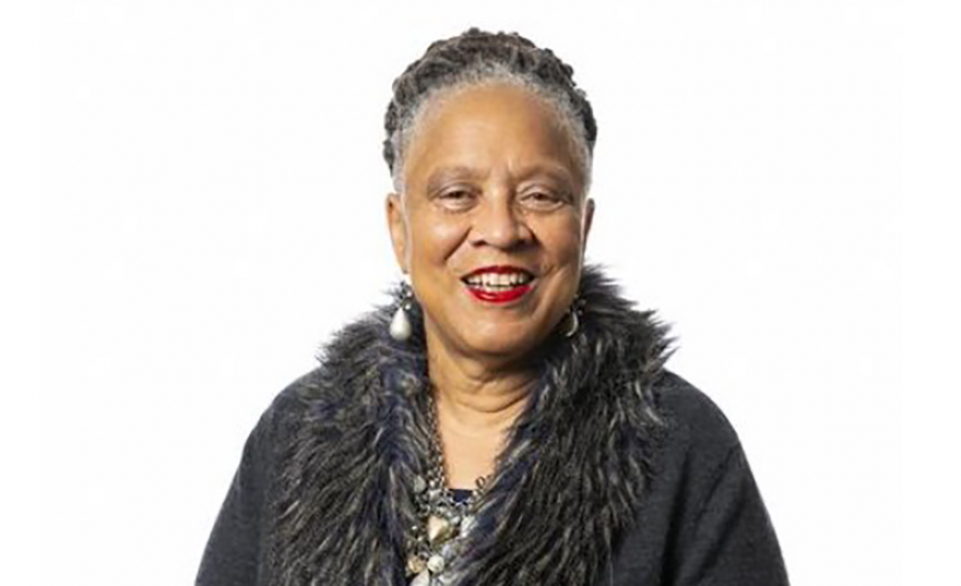Dr. Jamesetta Ferguson Creates a Village
Dr. Jamesetta Ferguson is a woman on a mission. A recipient of AARP’s prestigious Purpose Prize, and President and CEO of MOLO Village CDC, Ferguson leads efforts to revitalize Russell, a growing neighborhood of Louisville, Kentucky. In this interview we dig into her efforts through MOLO Village and what economic prosperity continues to unfold for the Russell community.
Has your career always been centered around community development? Can you describe your journey up to the formation of ‘Molo Village’?
My career has taken many twists and turns. However, I knew in my youth that I was called to help build up the Black community in some part. As a high school senior, I helped start a school sanctioned program for Black students called “Harambee”. Our goal was to promote Black pride and Black awareness not only in our school, but in our community.
But this seed of community action didn’t cultivate until I became Pastor of St. Peter’s United Church of Christ in 2006—there I witnessed the needs in the Russell neighborhood, a predominantly Black/African American neighborhood where 94% of the residents live in poverty. Listening to the residents, we addressed the need by forming the MOLO Village Community Development Corporation (CDC) in 2011, engaging residents in making their neighborhood one with basic social services. MOLO, African for Welcome Home, provides services for residents throughout their life span from childhood education, citizen re-entry, job skills, financial management, food and health needs, and senior engagement off-setting social isolation.
Recognizing it takes a village to build a community, MOLO Village CDC developed the Village@West Jefferson, a 30,000 square foot mixed-use facility. Opening its doors in July 2021, the Village is the first economic development in Russell in over 30 years. Residents now have a community bank, their first sit-down restaurant, an Early Head Start program, a technology business incubator for minority-owned businesses, a realtor, and the Norton Healthcare Institute for Health Equity among other entities.
Is this a second career for you, if so, can you describe your decision to enter the workforce again? Any major highlights of your experience?
Leading as a Pastor at St. Peters UCC and President of MOLO Village is actually a third career for me. After graduation in 1976 from HBCU Central State University in Wilberforce, OH, I started my career in banking, and after 10 years left to become an employee at the University of Louisville.
I was one of the first African American administrators at the University of Louisville Medical School and discovered I needed to address injustice and inequities in staff and faculty hirings, and residency admissions in the various departments that I was working, including pathology.
Can you share more about the uniqueness of Molo’s five “hamlets,” or programs? Why do you believe poverty and systemic racism continues to plague Black communities?
MOLO services are divided into five “hamlets” that focus on intergenerational and social issues within the family and the community providing education, services, events, and activities to set the base for Russell’s families to prosper. Our hamlets are the (1) Future Village – (children & youth) programming and activities, (2) Healthy Village – addressing the social determinants of health including food insufficiency, (3) Restored Village – (men and women) returning from incarceration and those dealing with substance abuse disorder); (4) Isiduko (means wisdom) Village – programming and activities for senior adults and (5) Empowered Village – addressing financial education, literacy, entrepreneurship, job training and economic development.
Why the Russell neighborhood in Louisville specifically?
I am a product of Russell! My mother was a divorced elementary school teacher, who worked four jobs to take care of her three daughters. I was the youngest sibling and spent a lot of time with my great aunt, who lived in the Beecher Terrace projects in Russell. When I returned to Russell, 40 years later, I realized the despair in the community and felt called by God to help transform and revitalize this once vibrant community back to a place of hope and Black pride.
What challenges did you have to overcome to see Molo Village through? What significant changes to available education and resources have you noticed in the last 5 years?
The challenges are not having enough resources to address the need. In 2014, the city government made a commitment to bring financial support into Louisville’s West neighborhoods to improve housing, education, business development, healthcare, and other infrastructure. Some $1.4 billion has been invested to-date.
Why do you feel it’s important for Black and Brown communities to have a hand in community development and lead their own economic prosperity?
I believe we at MOLO are laying the groundwork to improve the way our institutions work with each other in our community by requesting government, businesses, nonprofits, churches, and residents all have a place at the table. We cannot continue to work in silos. It takes a village to build a community, and we must ensure all voices are being heard and have an opportunity for action.
What does ‘aging with attitude’ mean to you?
Aging with attitude for me means never being too old to learn something new; Realizing that I have Isiduko and that it should be shared with those willing to listen. Don’t be afraid to tell your story and share the journey. Practice self care and enjoy family and friends. Aging with attitude means enjoying the fruits of my labor.
 NaBeela Washington, an emerging Black writer, holds a Master’s in Creative Writing and English from Southern New Hampshire University and Bachelor’s in Visual Advertising from The University of Alabama at Birmingham. She has been published in Eater, The Cincinnati Review, and others. Learn more at nabeelawashington.com.
NaBeela Washington, an emerging Black writer, holds a Master’s in Creative Writing and English from Southern New Hampshire University and Bachelor’s in Visual Advertising from The University of Alabama at Birmingham. She has been published in Eater, The Cincinnati Review, and others. Learn more at nabeelawashington.com.
Photo credit—Molo Village CDC
Editor’s Note: Today’s guest column on the potential for a “business bonanza” in 2025 comes from Manward Press Chief…
Copyright © 2025 Retiring & Happy. All rights reserved.








